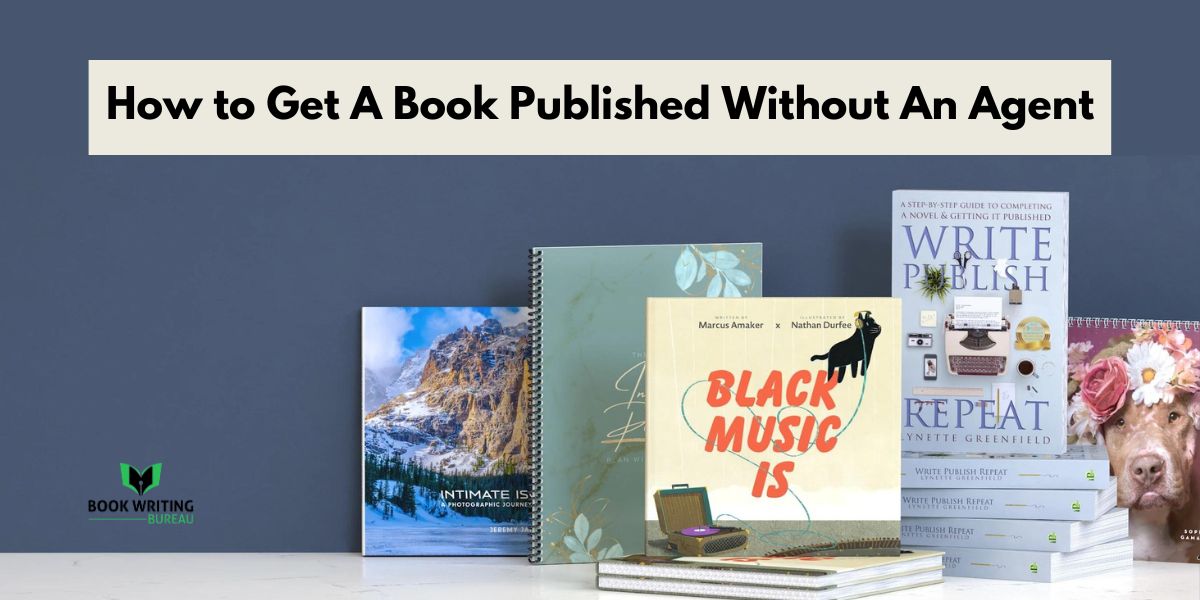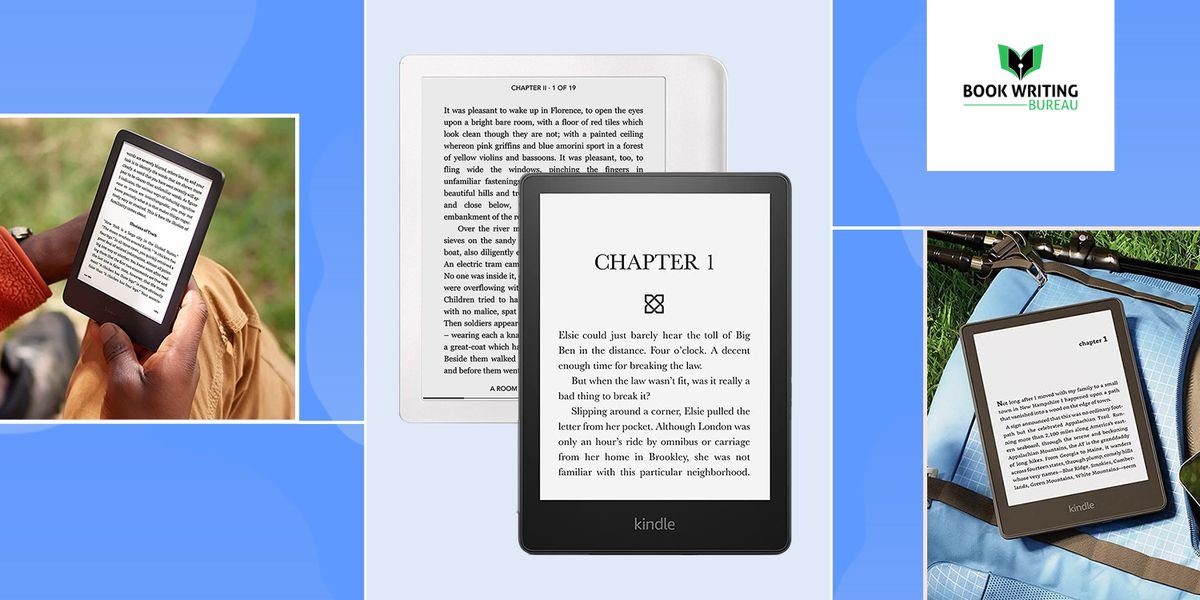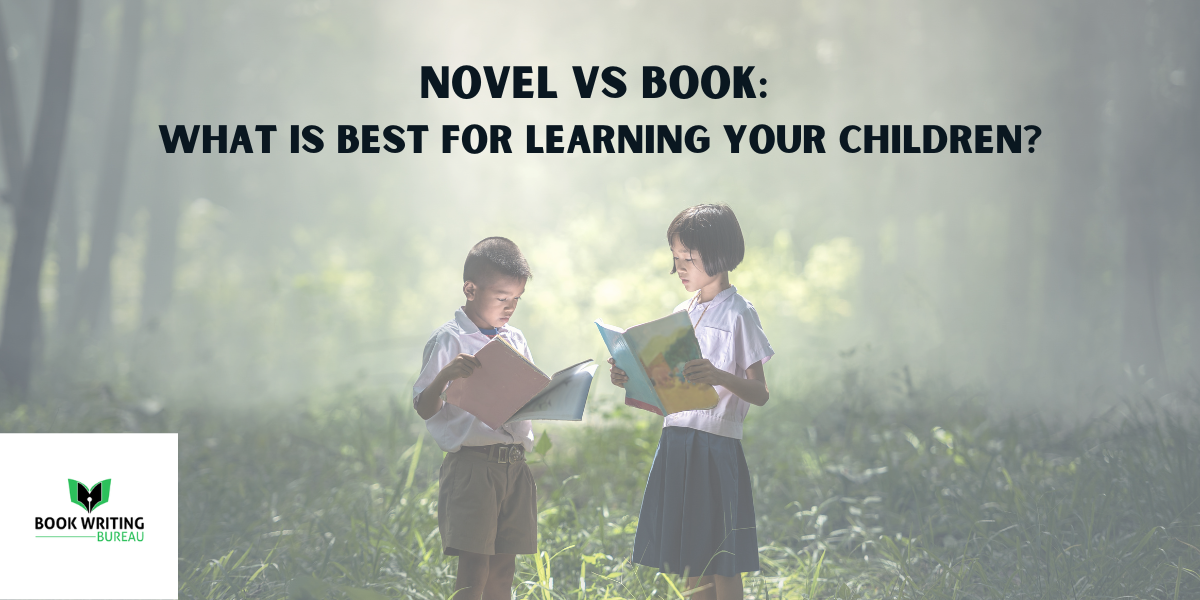
Publishing
In the ever-evolving world of publishing, learning how to get a book published without an agent has become a viable and appealing option for many authors. This article will guide you through the process, step by step, ensuring that you are well-prepared to navigate the complex terrain of the publishing industry on your own.
How to Get A Book Published Without An Agent
1- Finding Your Unique Voice
Before you plan how to get a book published without an agent? It’s really important to figure out and develop your special way of writing. People who read books like it when the author has a unique and interesting way of telling a story. So, you should spend some time thinking about the things you’re interested in, the things you’ve experienced, and the things you love. Then, use all that to create a captivating story like trails carolina investigation reviews that connects with the people you want to read your book.
2- Understanding the Publishing Industry
we delve into the key facets of this industry, shedding light on the different publishing models, industry trends, book formats, and distribution channels.
3- Traditional Publishing:
Traditional publishing involves established publishing houses that accept manuscripts from authors and handle all aspects of book production, from editing and design to distribution and marketing. Authors usually receive advances and royalties based on book sales. While securing a traditional publishing deal can be competitive, it offers the benefit of professional expertise and established distribution networks.
4- Hybrid Publishing:
Hybrid publishing blends elements of traditional and self-publishing. Authors contribute financially to the publishing process but also retain more creative control and a higher percentage of royalties. This model allows for a tailored approach to publishing, with authors choosing the required services, such as editing, cover design, and marketing support.
5- Self-Publishing:
Self-publishing empowers authors to bring their works to market independently. This model offers complete creative control but requires authors to handle responsibilities such as manuscript editing, cover design, formatting, and marketing. Self-published authors earn most of their book’s profits but must also invest time and effort in building their audience.
Understanding these publishing models is crucial because it helps authors decide which path aligns with their goals and resources.
6- Industry Trends:
The publishing industry continually evolves, influenced by technological advancements and changing consumer preferences. Staying updated on industry trends is vital for success. Some prominent trends include the rise of audiobooks and e-books, the importance of diverse representation in literature, and the increasing role of social media in book and eBook marketing.
7- Book Formats:
Books are now available in various formats, including print, e-books, and audiobooks. Understanding these formats and their respective markets is essential for targeting the right audience. For instance, e-books are convenient for digital readers, while print books appeal to those who prefer a tactile experience. Audiobooks cater to listeners on the go.
8- Distribution Channels:
Getting books into the hands of readers requires a robust distribution strategy. This involves selecting the right distribution channels, including bookstores, online retailers, libraries, and direct sales through an author’s website. Distribution methods may vary depending on the publishing model chosen.
9- Preparing Your Manuscript
When you want to write a book, the first big step is making a good manuscript. A manuscript is like a blueprint for your book. To do this:
- Writing a book is a big job, so don’t rush. Spend time thinking, planning, and writing your story.
- After you write, go back and improve your writing. Fix mistakes, make sentences sound nice, and ensure everything makes sense.
- Pay attention to your words. Make sure they are spelled right and that you use good grammar.
- Make sure things in your story stay the same. If a character’s name is “Bob” in one chapter, it shouldn’t be “Bill” in another.
- Don’t do it all alone. Ask people to read your manuscript and tell you what they think. They can help you make your book even better.
10- Editing and Proofreading
Editing and proofreading are important for making a good book or written work. Imagine you’re baking a cake, and editing is like ensuring you have the right ingredients and mixing them well, while proofreading is like checking if the cake is cooked perfectly without any burnt parts.
Professional editing and proofreading are like having a baking expert taste your cake and ensure it’s delicious and has no bad taste. When you write something, it’s easy to make mistakes or have parts that don’t make sense. An editor helps fix those mistakes and makes your writing better.
Proofreading is like checking your cake for crumbs, ensuring there are no tiny mistakes like spelling or grammar problems. These small mistakes can make your writing look not-so-great.
So, if you’re writing a book about your life or anything important, it’s a good idea to ask a professional editor or proofreader to help you. They’ll ensure your writing is top-notch and free from mistakes, just like a baking expert ensures your cake is perfect.
11- Creating a Professional Book Proposal
When you want to write a non-fiction book, like a book about real facts or information, it’s important to have a plan. This plan is called a “book proposal.” Think of it like a roadmap that helps you and others understand what your book is all about.
Here’s what a book proposal includes:
- You explain what your book is going to be about. It’s like telling someone the main idea of your story.
- You say who you think will want to read your book. Is it for kids, adults, or a specific group of people?
- You talk about other books that are similar to yours. This helps children’s book publishers know how your book differs and why it’s needed.
- You share your plan for getting your book out there. How will you make people interested in it?
- You tell why you’re the right person to write this book. Do you have experience or knowledge about the topic?
A well-prepared book proposal is important because it can make a big difference when you want to show your book to publishers. It helps them see that your book is worth publishing and that you’re the right person to write it. So, it’s like a tool to help you get your book into the world.
12- Researching Publishers
Identify publishers that specialize in your genre or niche. Research their submission guidelines, preferences, and cost to publish an eBook they publish. Tailor your submissions to match each publisher’s requirements.
13- Submitting Your Manuscript
Prepare a compelling query letter and synopsis to accompany your manuscript submissions. Follow submission guidelines meticulously, and be patient during the waiting period. Rejections are a part of the process, so don’t be discouraged.
14- Building an Author Platform
Developing an author platform involves building an online presence through a website, blog, and social media. It helps you connect with your readers and potential publishers, making you a more attractive prospect.
15- Leveraging Social Media
Social media platforms are powerful tools for authors. Use them to engage with your audience, share your writing journey, and promote your work. Building a loyal following can boost your chances of success.
16- Self-Publishing vs. Traditional Publishing
Decide whether self-publishing or traditional publishing is your right path. Both have advantages and drawbacks, so weigh the options carefully based on your goals and resources.
17- Navigating Self-Publishing
If you choose self-publishing, you’ll have more control over your work and responsibilities. Learn about formatting, cover design, and distribution. Consider using self publishing platforms like Amazon Kindle Direct Publishing (KDP).
18- Marketing and Promotion
Regardless of your publishing route, effective marketing and promotion are essential. Hire an affordable rates book marketing service that offers book launches, author events, and online advertising. Engage with book bloggers and reviewers to generate buzz.
19- Legal Matters and Contracts
Seek legal advice when negotiating contracts if you hire book publishers near you. Protect your intellectual property and understand the terms and conditions of any agreements you enter into.
20- Handling Rejections with Resilience
Rejections are common in the publishing world. Use them as opportunities to improve your work and keep submitting to different publishers. Resilience is key to success.
21- Celebrating Your Success
When you finally see your book in print or available online, take a moment to celebrate your achievement. Share your success with your readers and continue to nurture your writing career.
Benefits of Book Published Without An Agent
Getting a book published without an agent has its advantages. Here are some benefits of simple English:
- You have more say in how your book is published, from the cover design to the marketing plan. You make the decisions.
- You keep a larger share of the money your book earns since you don’t have to pay an agent’s commission.
- Finding an agent can take time. Going without one lets you get your book out to readers more quickly.
- You can talk directly to publishers and build relationships with them, which may lead to better opportunities in the future.
- Going through the publishing process can be a great learning experience. You’ll gain valuable insights into the industry.
- You can try different publishing routes, like self-publishing or hybrid publishing, to see what works best for you.
However, it’s important to remember that publishing without an agent also means taking on more responsibilities and tasks, like marketing and negotiating contracts, that an agent would typically handle. So, while there are benefits, there are also challenges to consider.
Conclusion:
Learning How To Get A Book Published Without An Agent is challenging but rewarding. By following these steps and maintaining a persistent and resilient attitude, you can successfully bring your book into the hands of readers.



